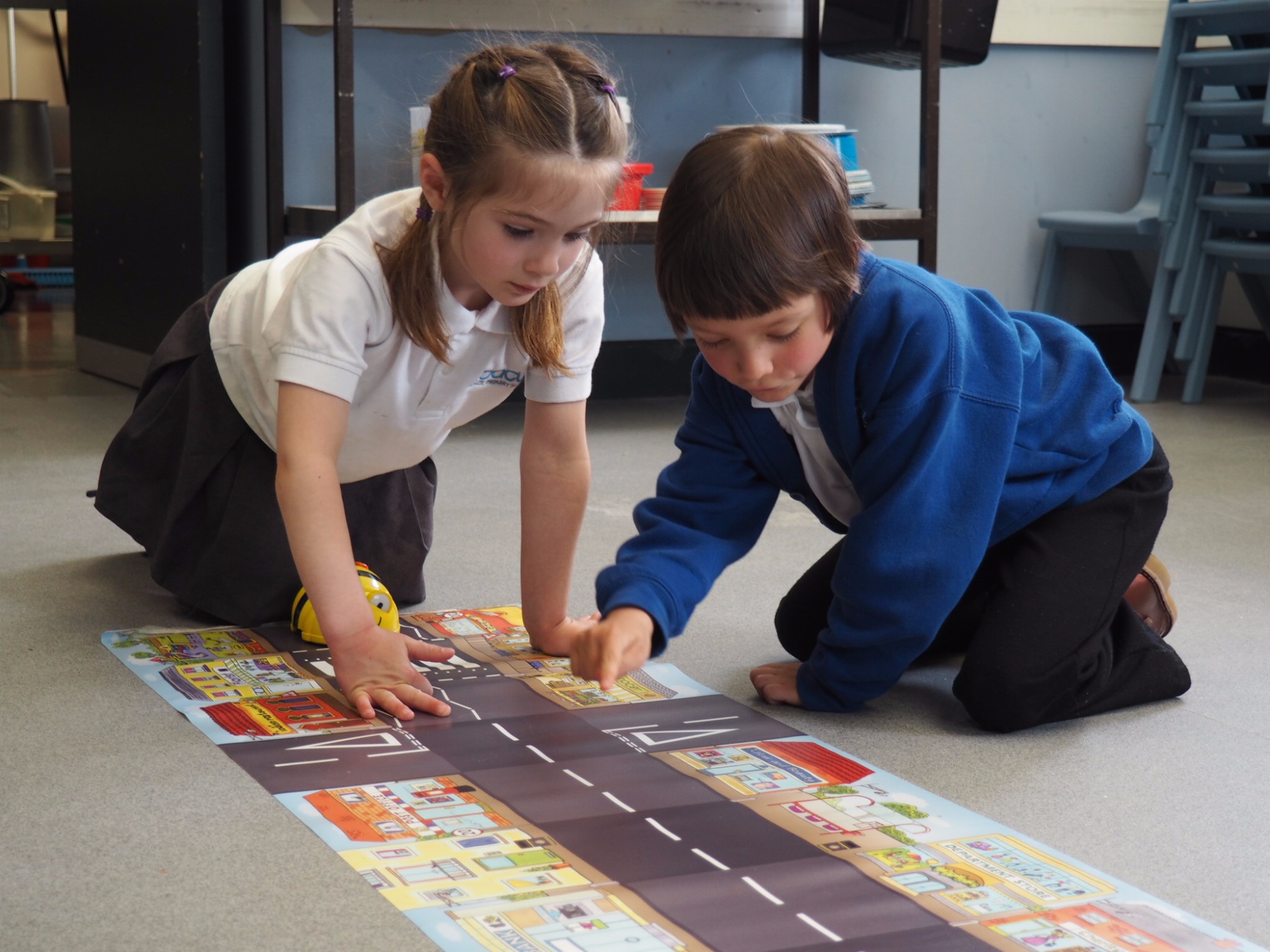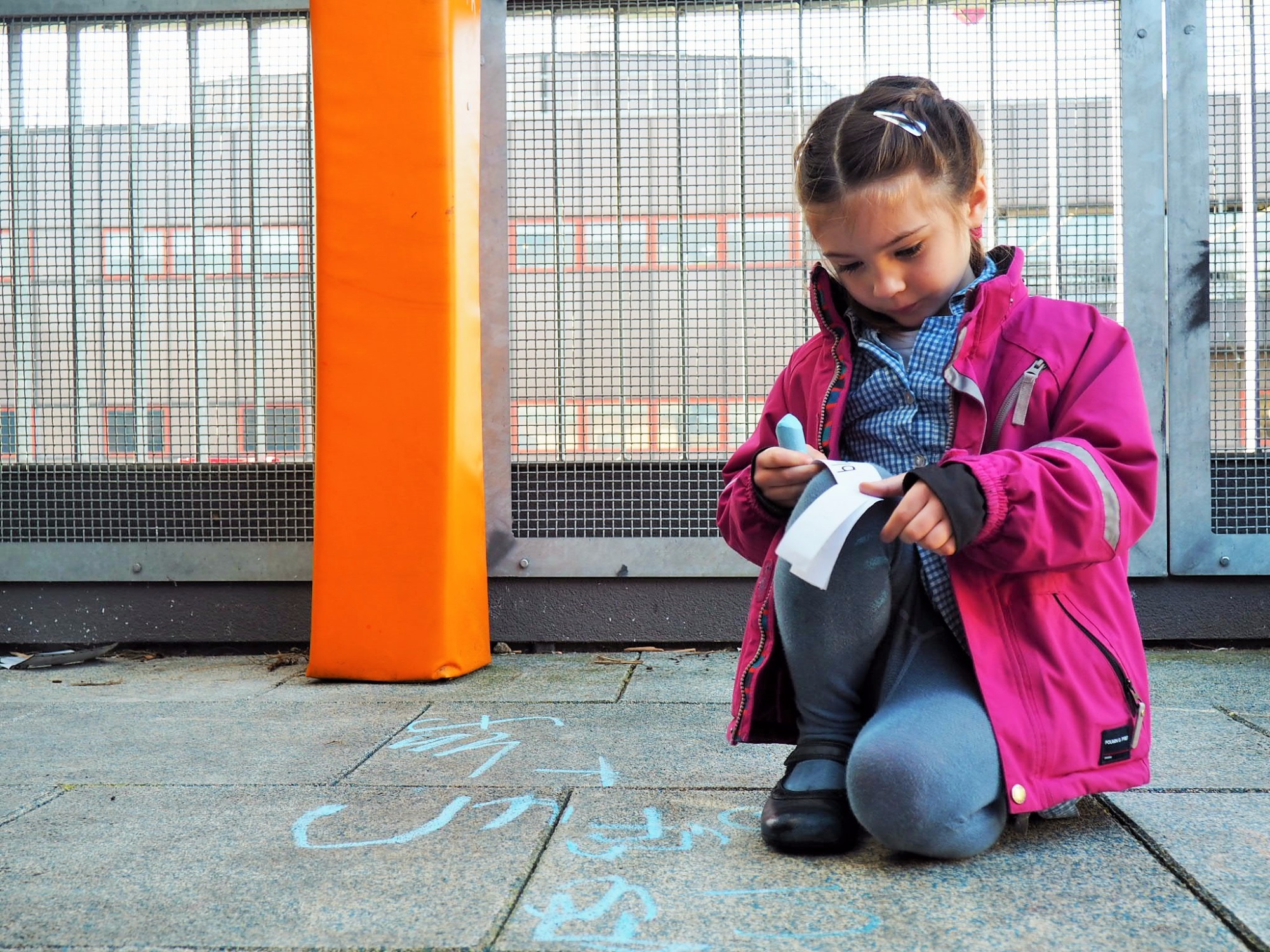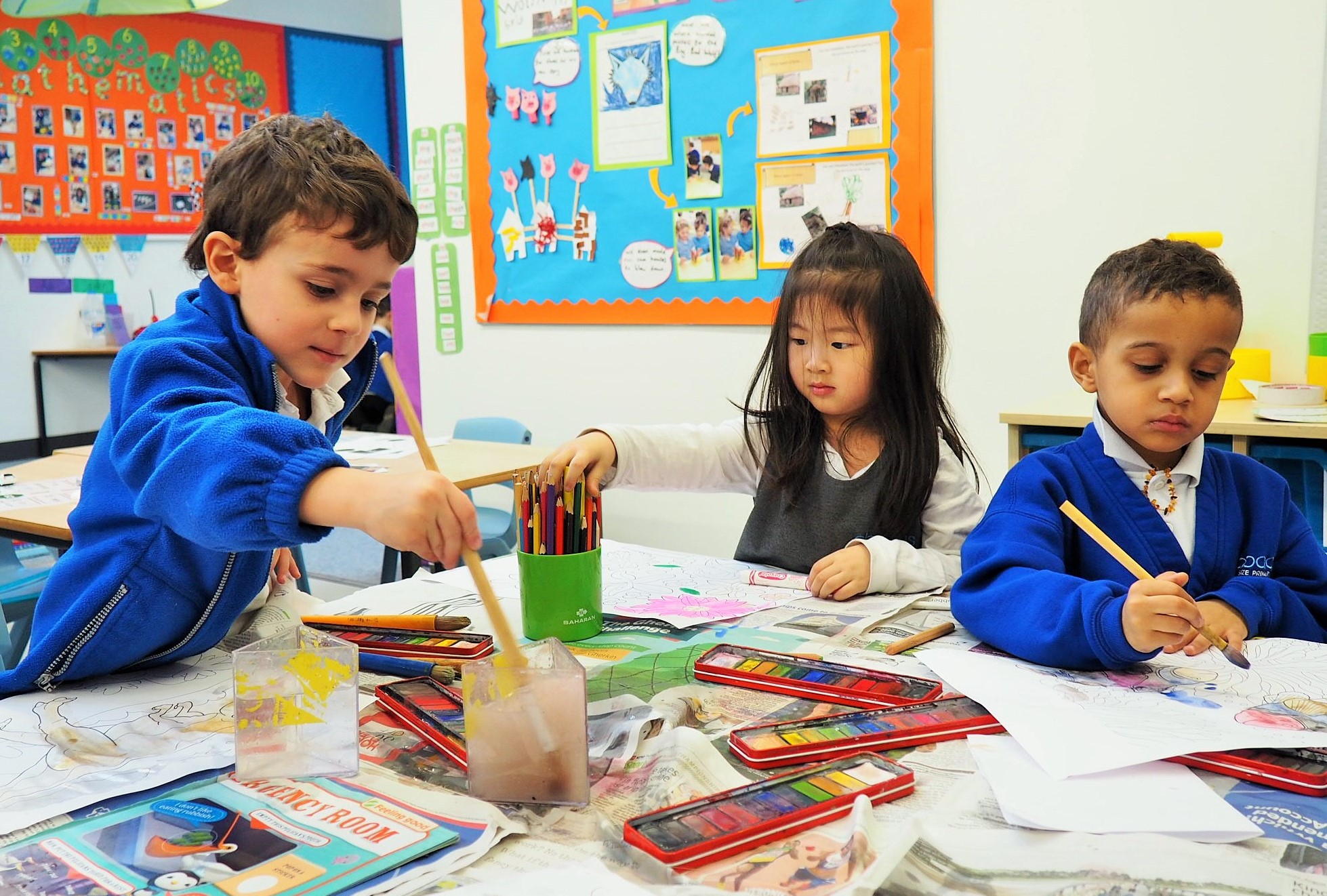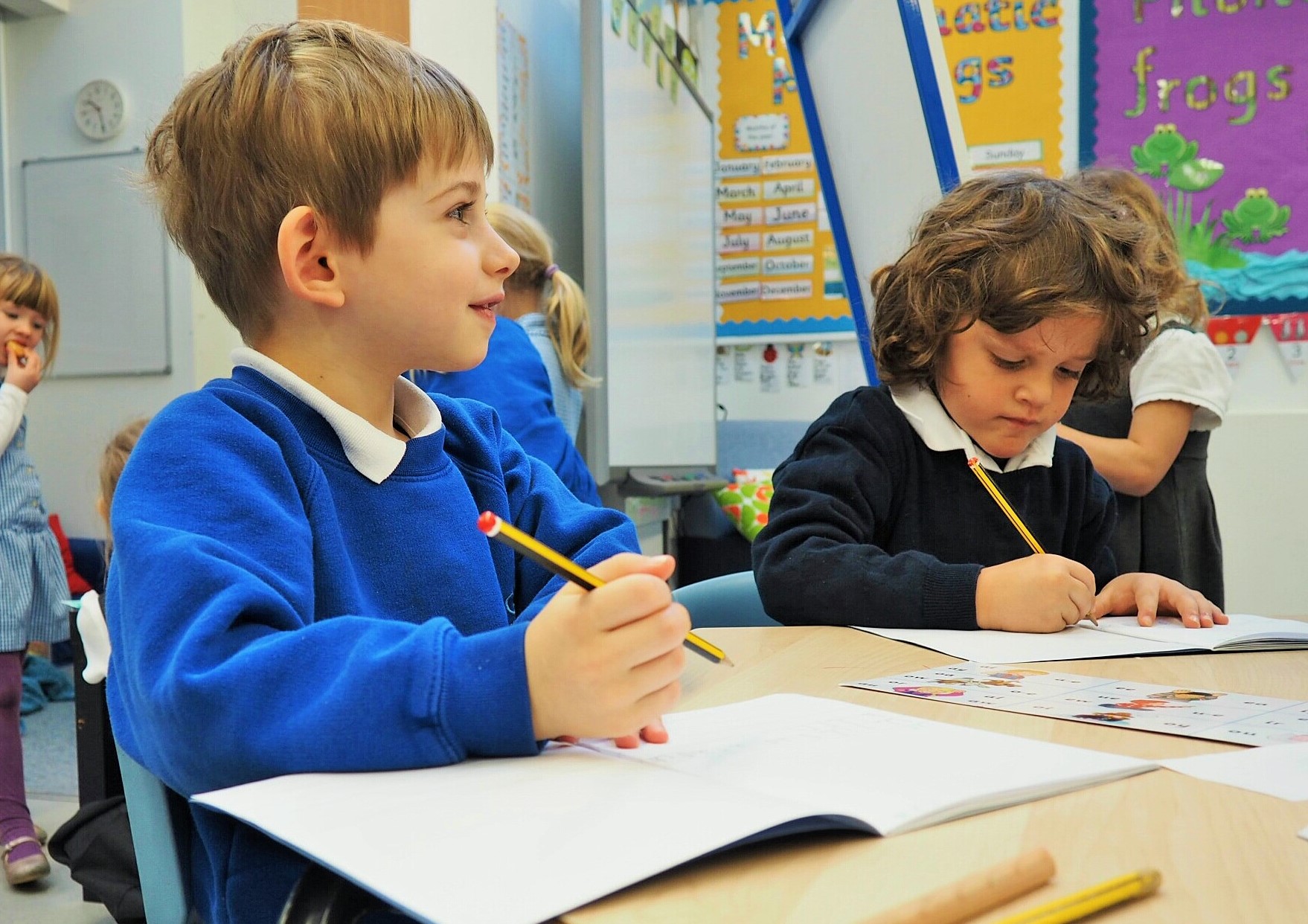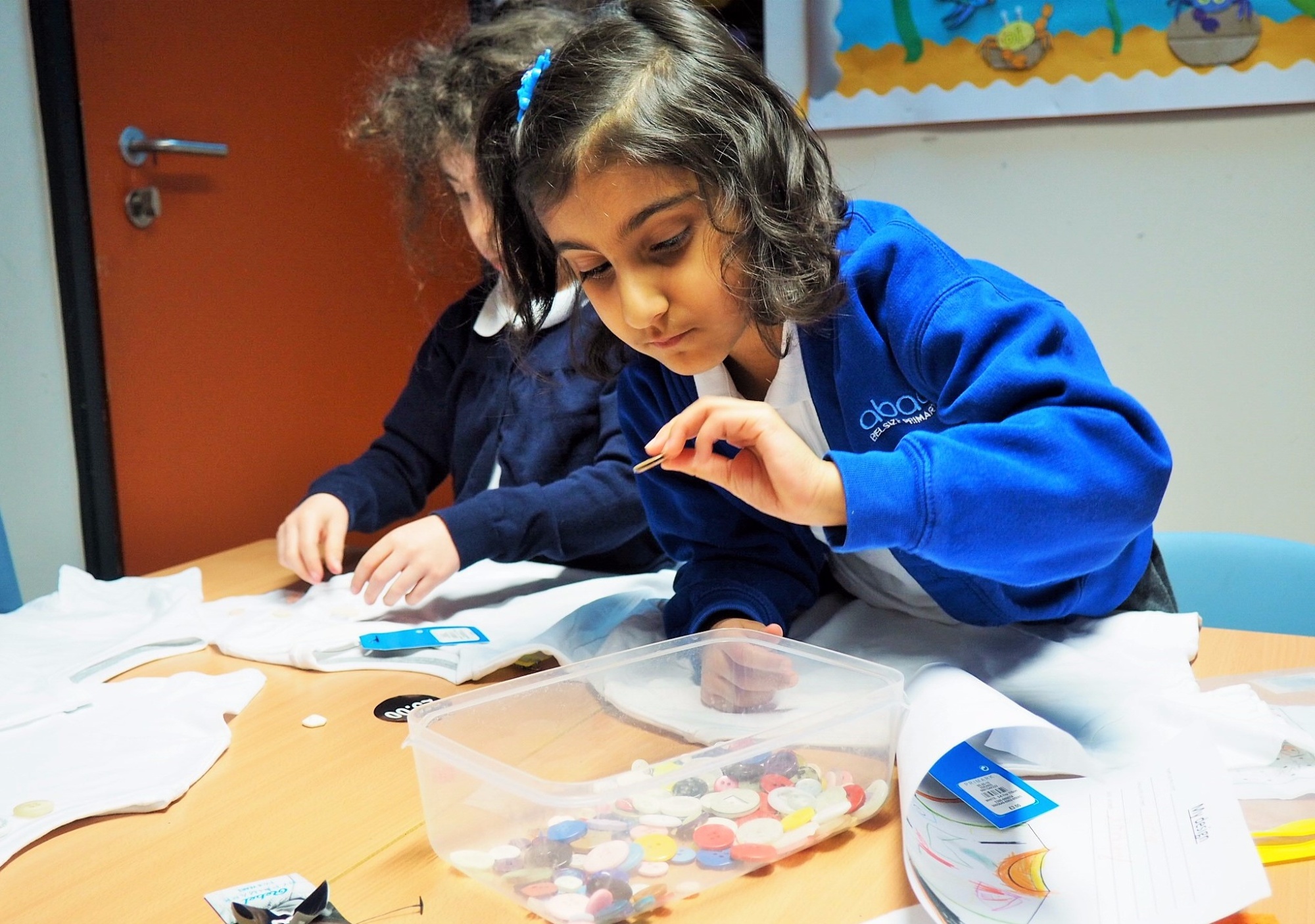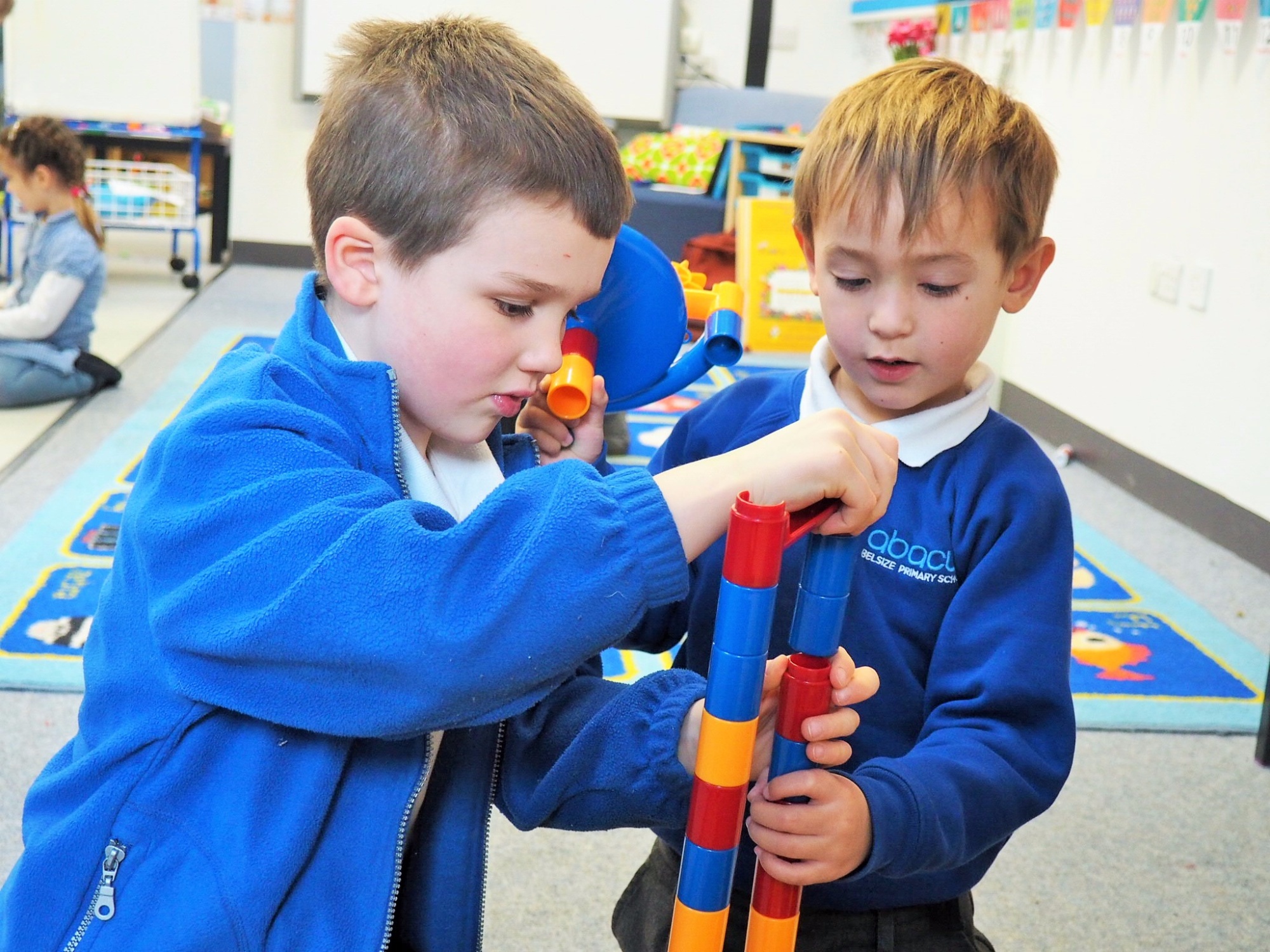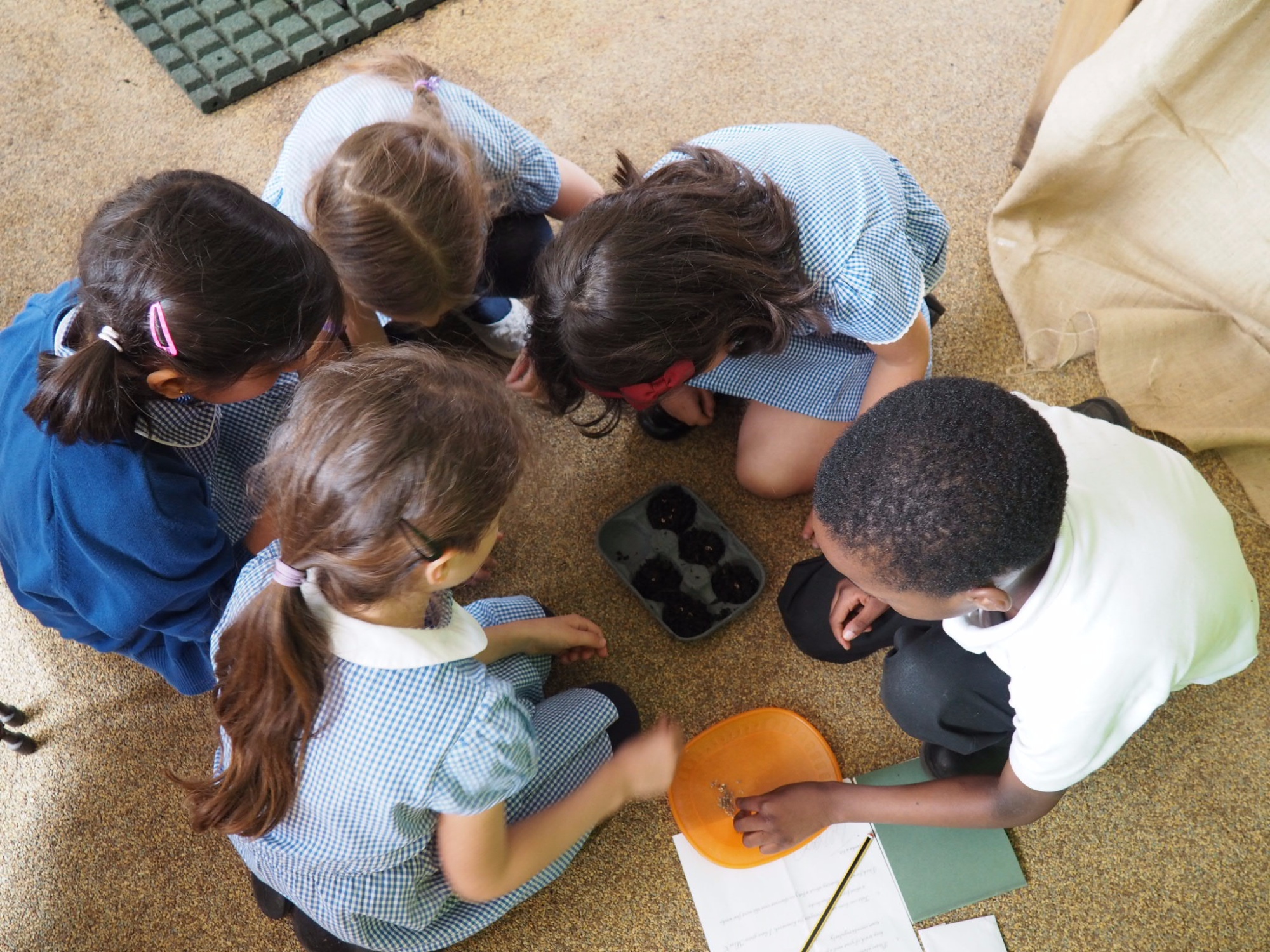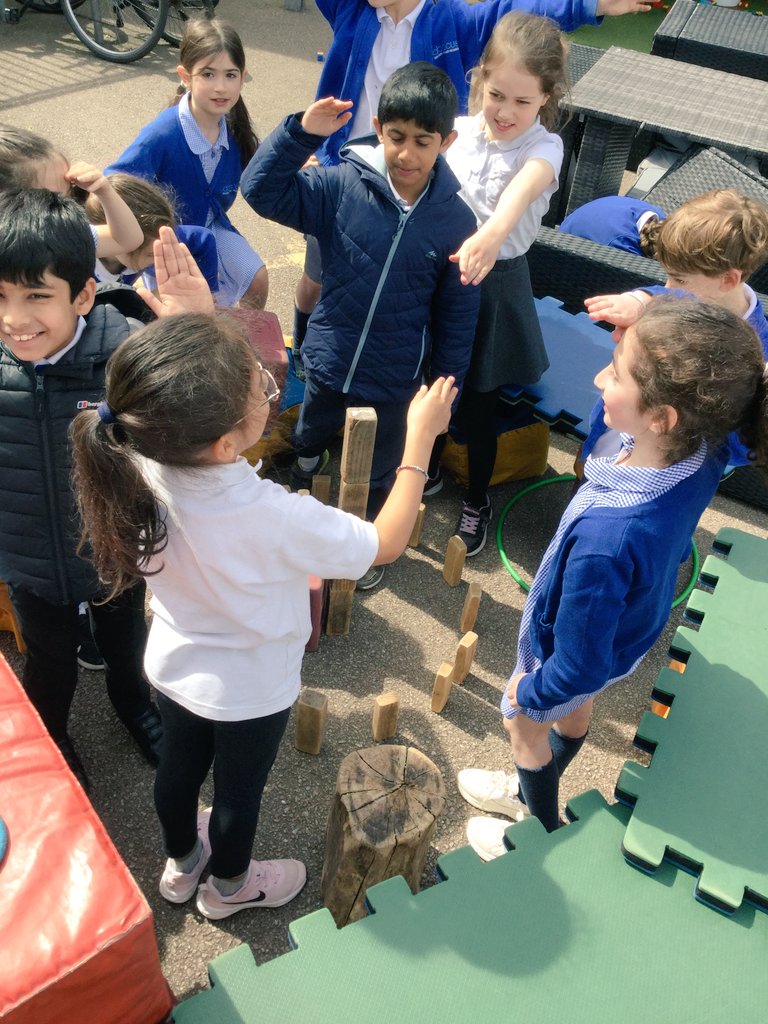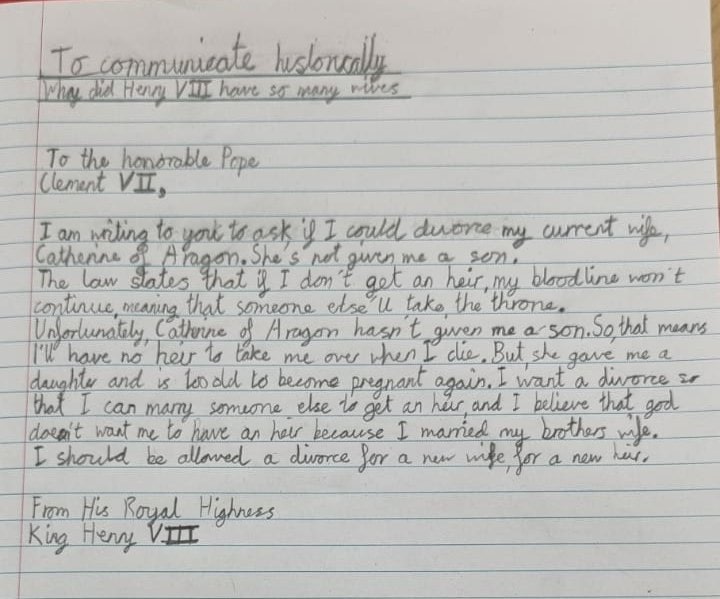History
Children at Abacus THRIVE because they are investigators, critical thinkers, archaeologists, judges and curators. They think critically, communicate ideas with confidence and think, reflect, debate, discuss and evaluate the past through schemas and lines of enquiry.
"I enjoy looking at different sources in history." - Year 4 pupil.
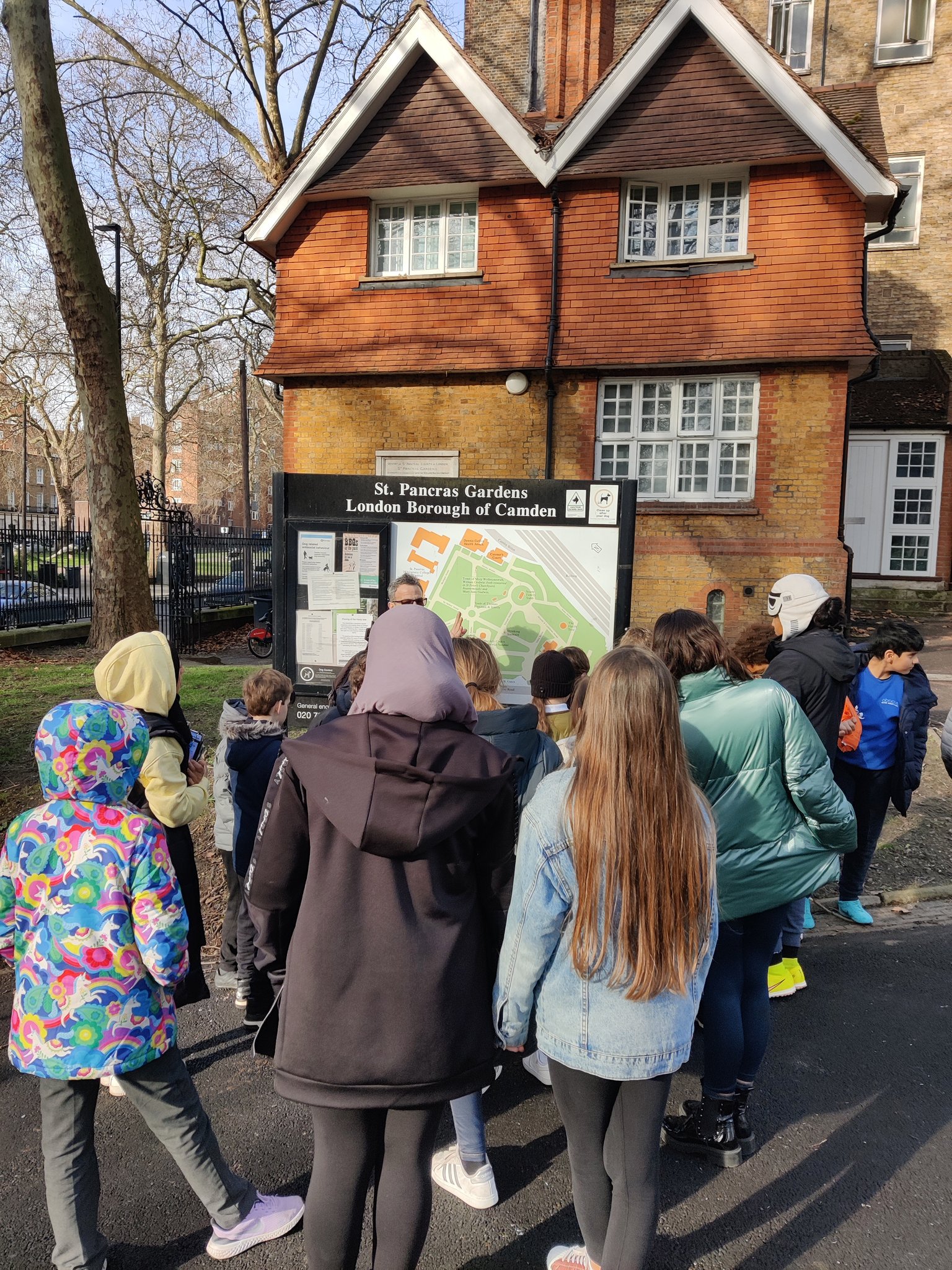
Exploring the historic St Pancras Gardens History lessons about the Stone age continuing on in playtime!
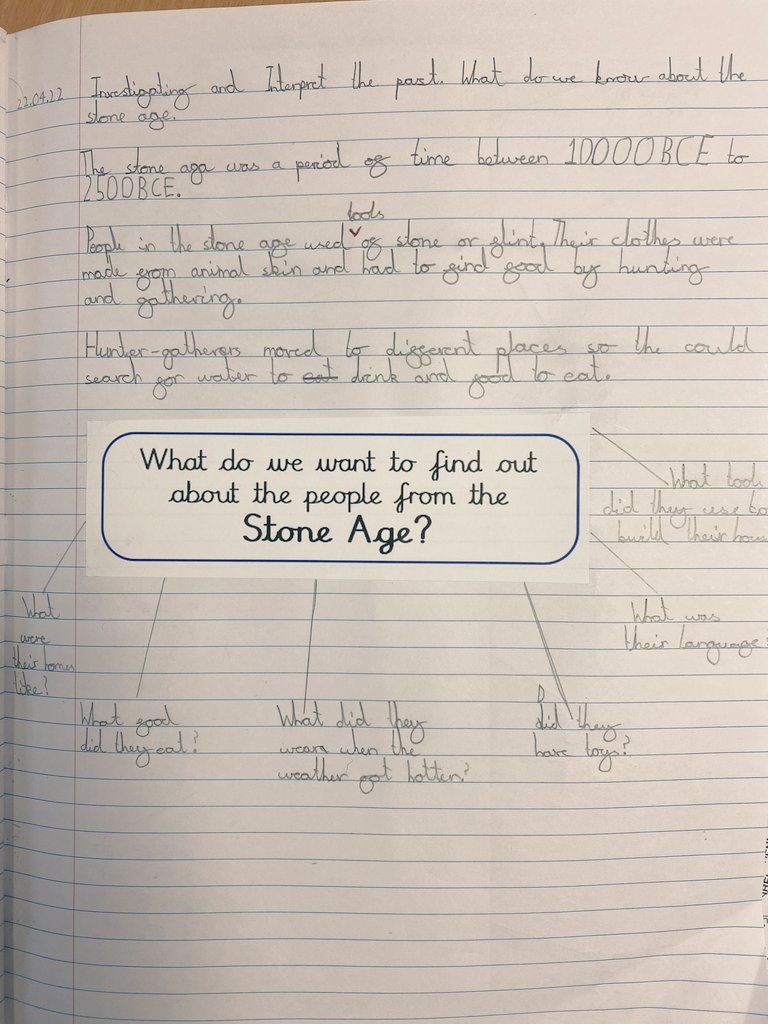
Investigating and Interpreting the past Curiculum Friday History outcomes
Intent
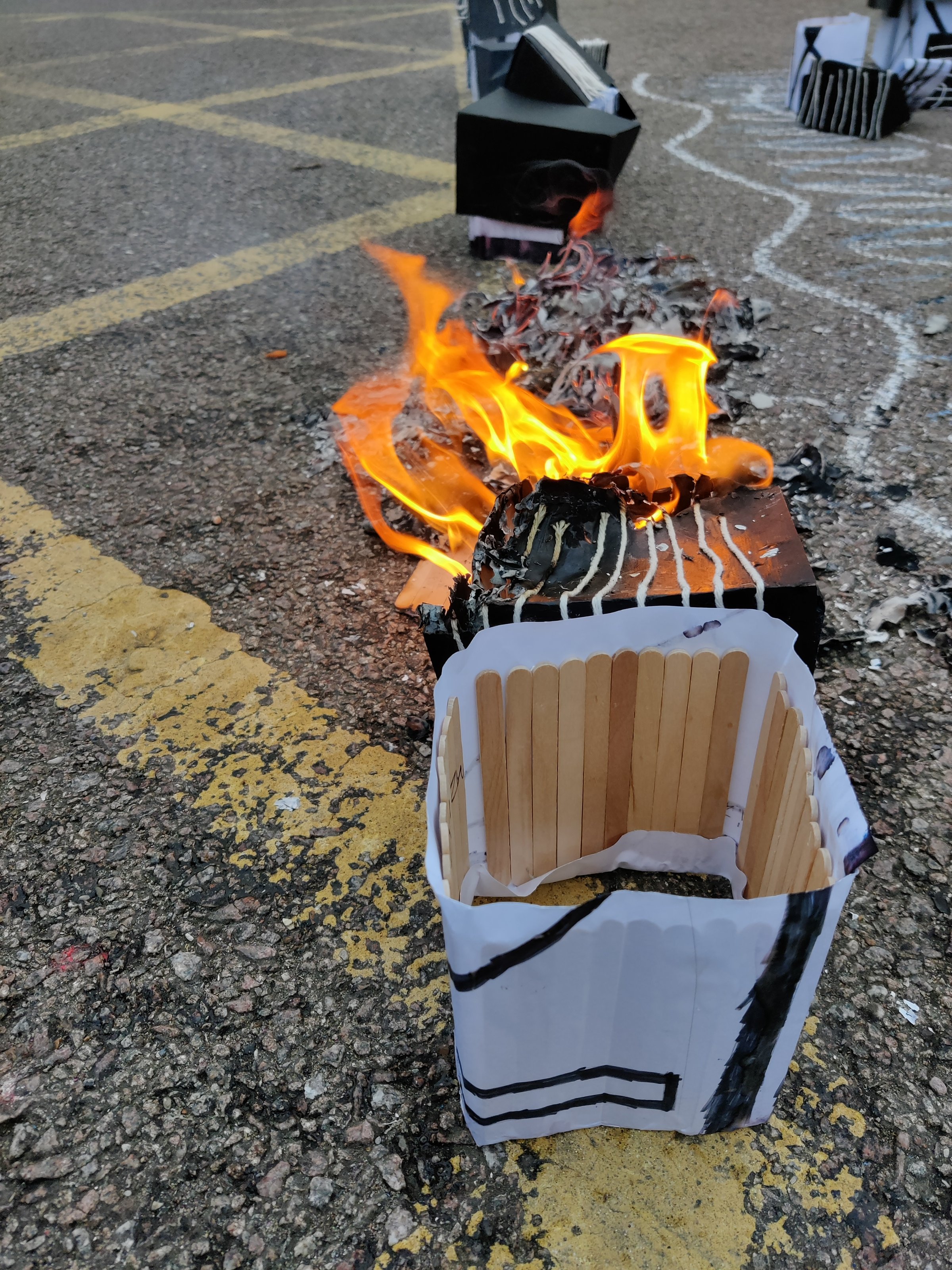
We aim to inspire a love of History and to foster a curious and enquiring nature. Our broad and balanced curriculum ensures that our children have a thorough understanding of chronology and history within the context of the wider world so that children can make links between prior learning and to understanding the cause an effect of these may have on each other. Our children acquire, remember, use and build on their knowledge of history by linking schematic abstract terms such as ‘empire’, ‘monarchy’ and ‘parliament’ to thread the curriculum at every Key Stage in a range of contexts.
We know that evidence and hands on learning enriches the experience of history for children and they use this to build up a well-rounded view of different time periods and to understand the complexity of people’s lives, the process of change, the diversity of societies and relationships between different groups, as well as their own identity and the challenges of their time. Our curriculum ensures children examine artefacts and sources, generate historical enquiries and interpretations, evaluate their findings and balance their conclusions based on an unbiased view.
Our ambitious curriculum takes children beyond the National Curriculum and prepares them well for Key Stage 3.
Children at Abacus are Historians… investigators, critical thinkers, curators, sociologists, archaeologists!
Implementation
History is taught across 3 units for every year group. Each unit lasts for 1 half-term and is taught across the whole day on our 'Curriculum Day', every Friday.
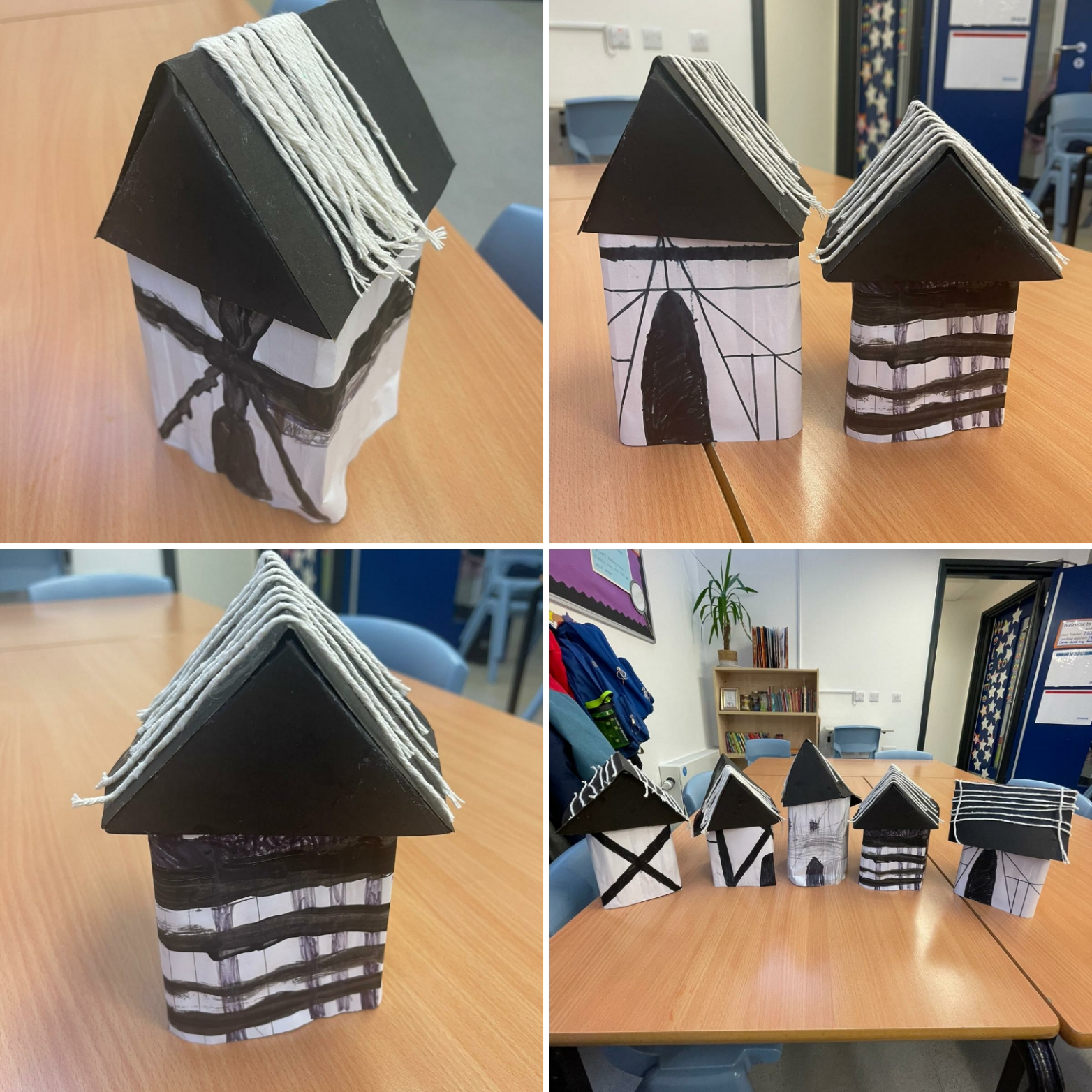
In KS2, UK history is taught chronologically to allow children to confidently place each time period. This allows pupils to consistently build on previous knowledge and learning by placing previously taught history topics on a timeline. It also provides opportunities for children to compare civilisations and their influences and any lasting legacies on another civilisation.
Each lesson is shaped by an enquiry question rather than learning intention. We want children to understand that history is an interpretation of the past and that by asking questions, we can use evidence and a range of sources to develop our own conclusions.
As part of our enrichment offer, children will visit an historical site or museum for every unit that they study.
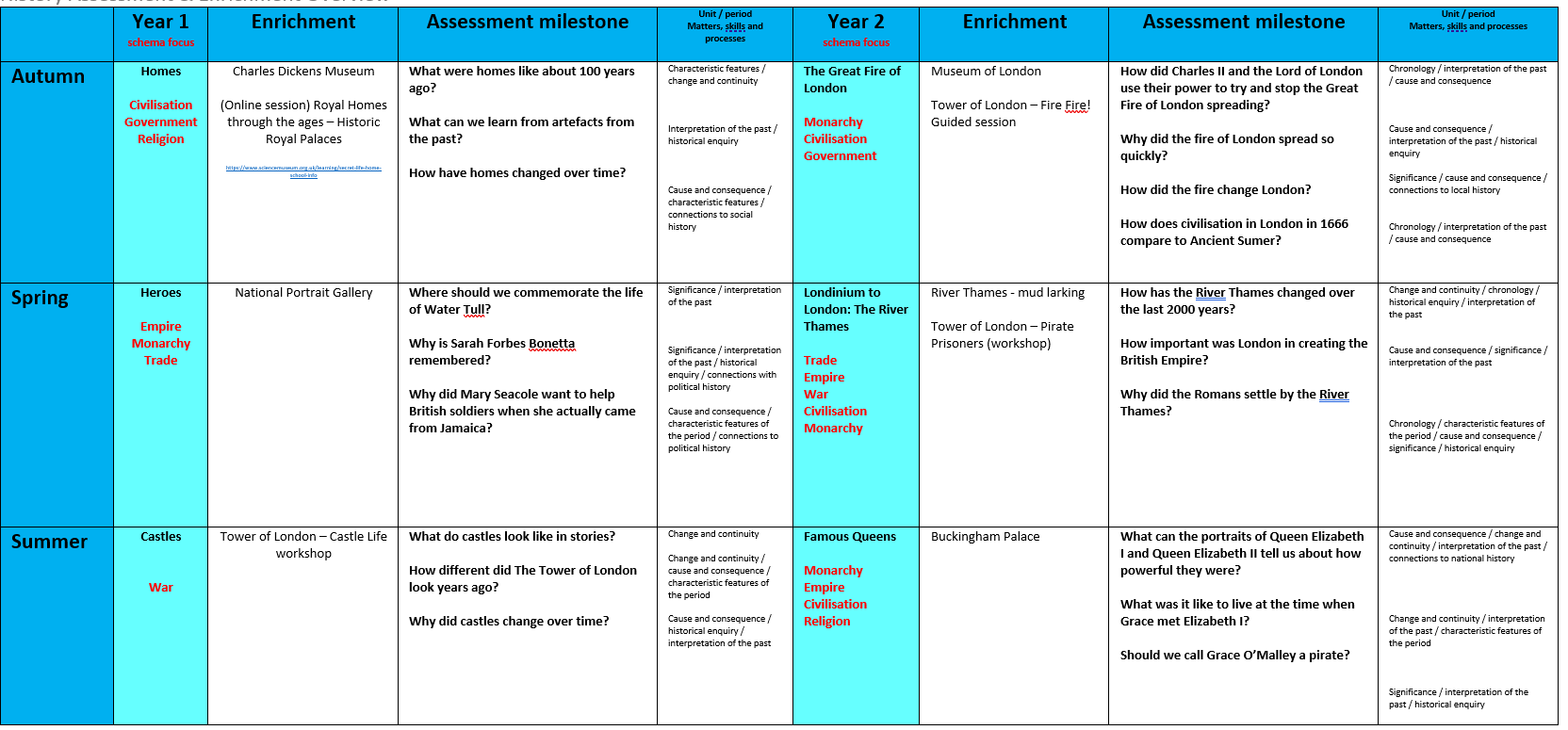
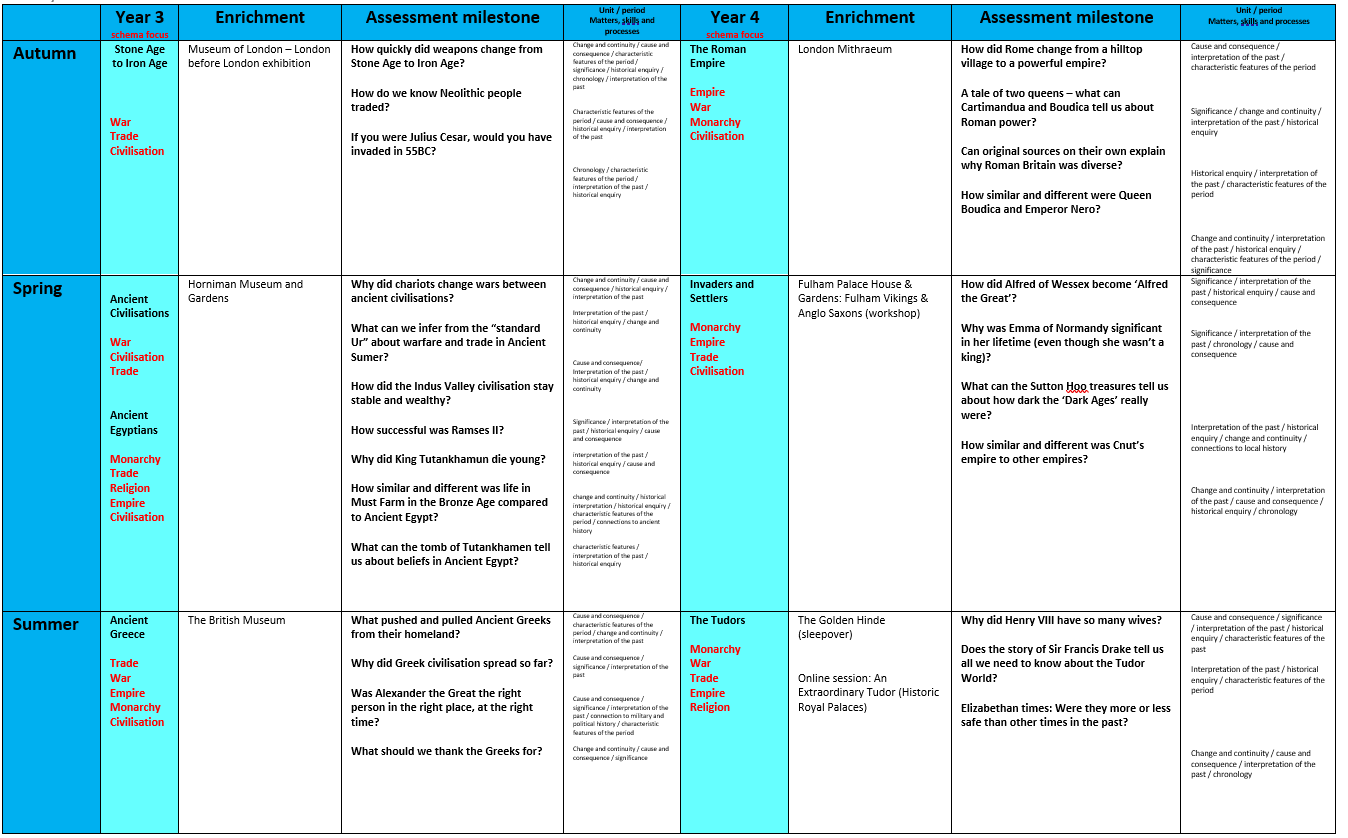
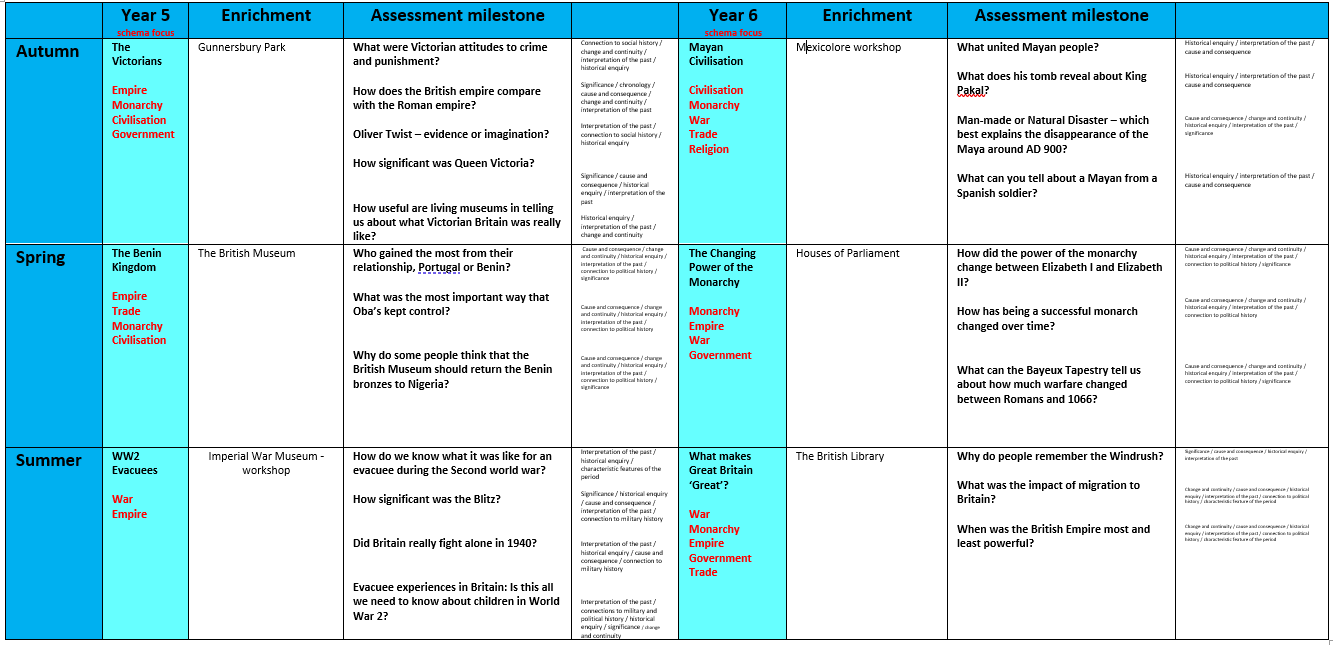
Impact
Assessment
We assess history through what we call 'Assessment Milestones'. Once a week, teachers will focus on one of the enquiry questions and assess how well children are able to answer it. These are pre-planned as shown in our overview above. These questions will help teachers to establish how well children can understand second order concepts, these are:
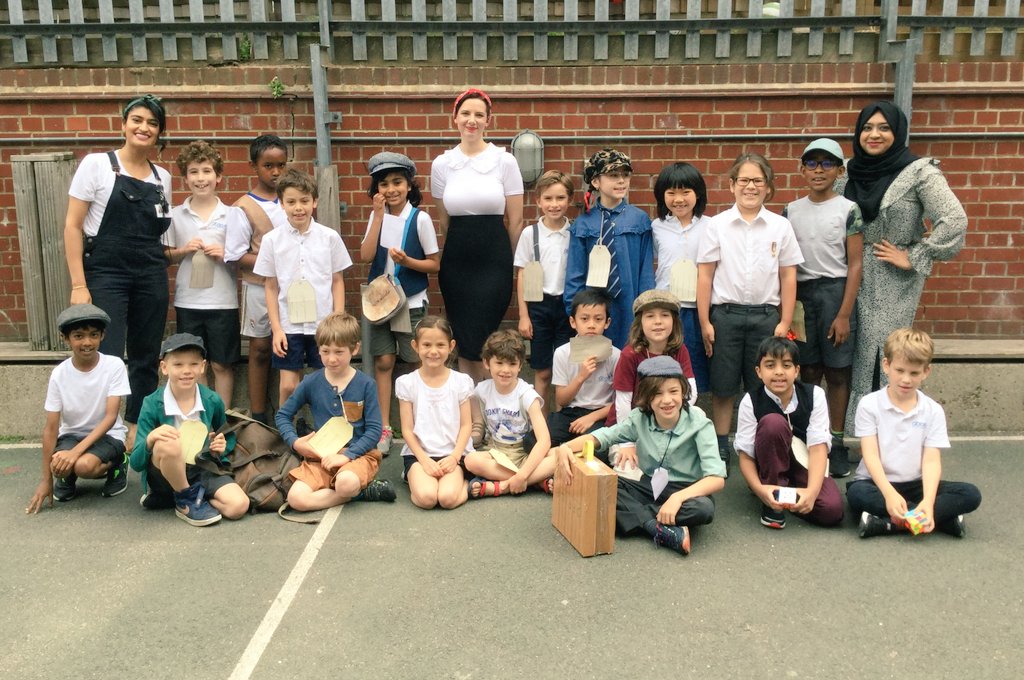
- change and continuity
- cause and consequence
- historical enquiry
- significance
- characteristic features (of the period)
- connections (local / national / cultural / economic / military / political / religious and social history)
This is either assessed through pupil voice (which is recorded in the class floor book) or through an outcome in their books. This helps teachers to build a better picture of the skills children need to develop further.
At the end of each unit, teachers will complete a skills progression assessment which will evaluate the coverage of each second order concept. Please see an example of this attached below. Children record their history outcomes in Curriculum books and physical outcomes as well as whole-class learning and pupil voice in History floor books.
THRIVE-ing in History
"We loved learning about the Great Fire of London. We visited the Tower of London and went to the 'Fire! Fire!' event." - Year 2 pupil.
"We went from the ‘Stone Age’ to the ‘Bronze Age’ to the ‘Iron Age’ in the correct order." - Year 3 pupil.
"I enjoy looking at different sources in history." - Year 4 pupil.
"If we need support to remember things, we can refer to our knowledge organisers and back in our books or the learning wall." - Year 5 pupil.
"We read Hitler’s Canary last year in guided reading, which linked to our topic on World War II. We learned about the Danish perspective, which was so interesting." - Year 6 pupil.
"I like that we explore things from different perspectives in history. We don’t look at historical figures as ‘heroes’ in a biased manner." - Year 6 pupil.
EYFS
Children in reception investigate History through the specific area 'Understanding the World'.
Through focus groups and free-play activities in the learning environment, children are compare and contrast characters from stories and important people from the past. Children learn about how different transport has evolved over time and look at when the dinosaurs roamed the Earth using a class timeline. Children talk about what they can see when comparing images from the past and present. Children talk about how they change over time and about important people in their family.
Examples of history in EYFS:
- describing objects and images using the phrases 'a long time ago', 'yesterday' and 'in the past'
- comparing what transport looked like in the past and now
- using the timeline to think about when dinosaurs existed
- learning about famous people from the past
- Royal family
- important buildings in London
- toys from the past and present
- space exploration
Role play and on-going provision supports our history schemas in a variety of ways, for example children are introduced to the schema of 'trade' through the buying and selling of goods in a shop role play area.

